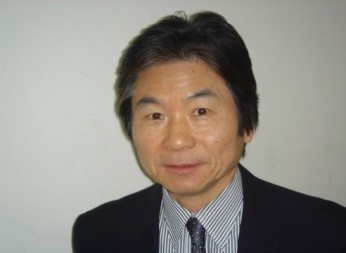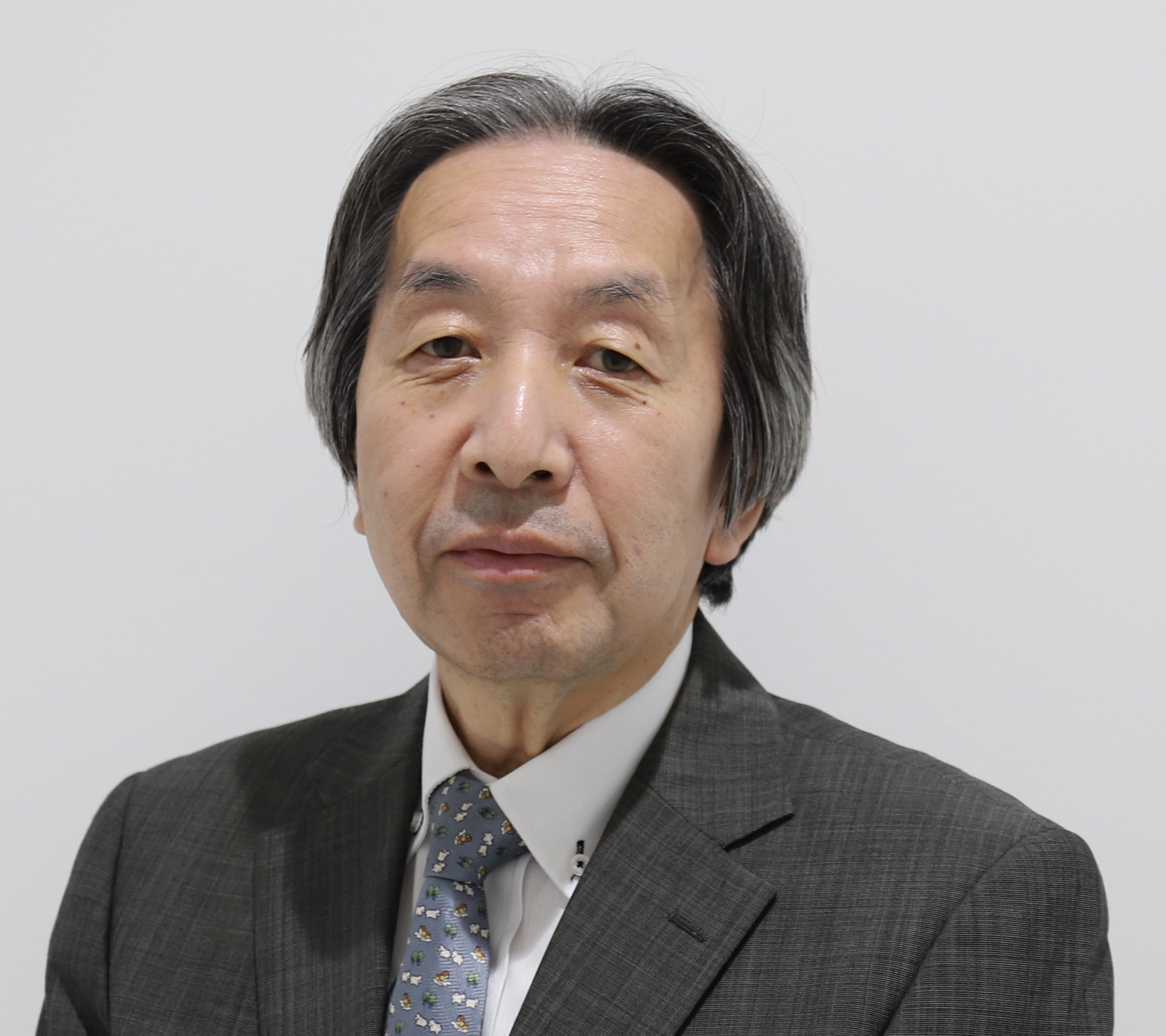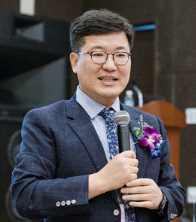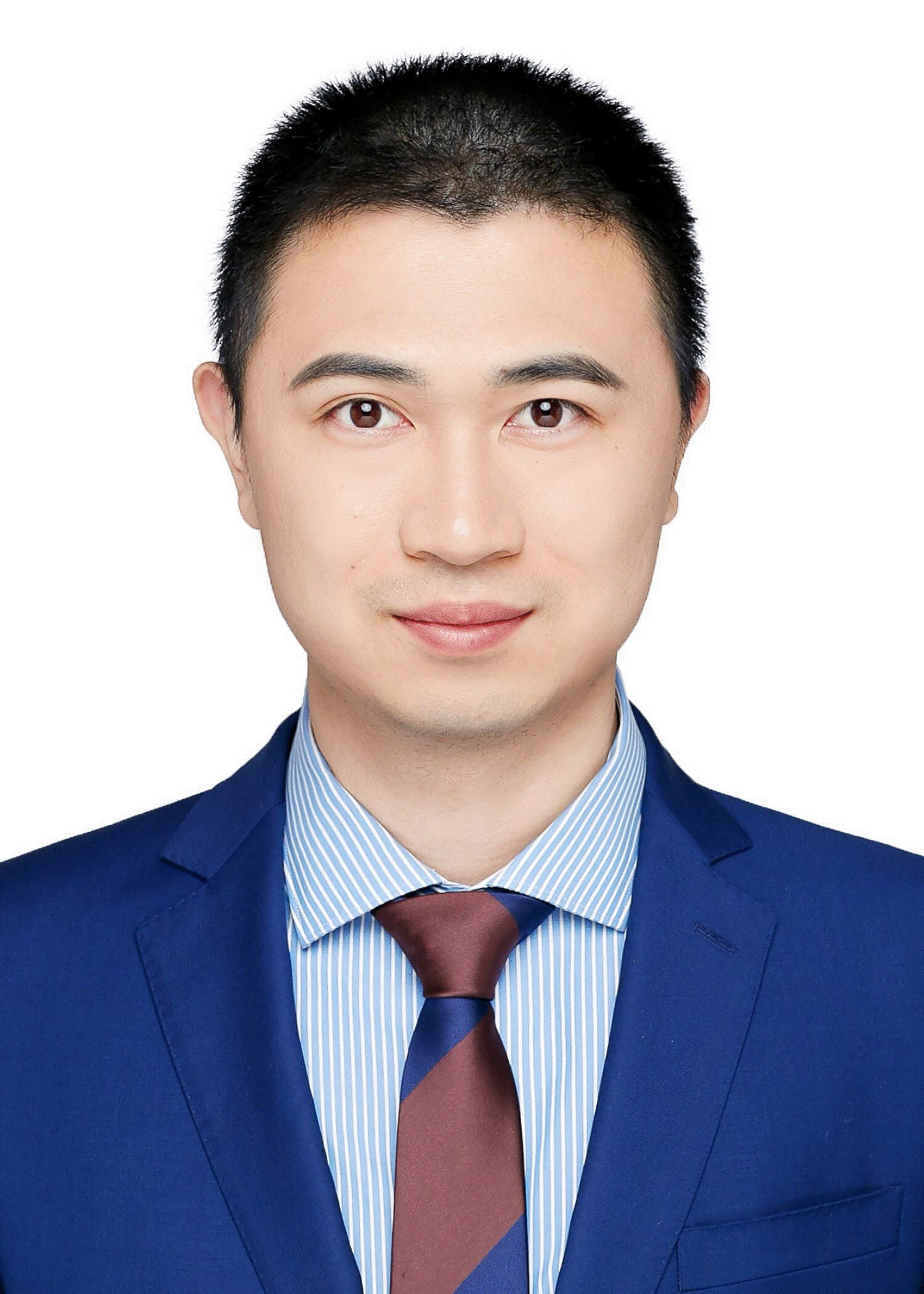Keynote Speakers and Invited Speakers
|
Prof. Peigen Li Academician of Chinese Academy of Engineering, Chairman of the National Intelligent Manufacturing Expert Committee, Former President of Huazhong University of Science and Technology, China Title:Education should help students develop their own "taste" Abstract As AI holds an insurmountable advantage in knowledge, the role of knowledge as a component of human competence must be redefined and will inevitably shrink. While "taste" will become the critical differentiator for truly exceptional individuals. How education help students develop their own "taste"? Education needs to transition from a "knowledge-oriented" approach to a "problem-oriented" one, with a heightened focus on cultivating higher-order thinking skills such as critical thinking. Furthermore, it must strive to avoid issues like "cognitive debt". Bio: Mr. Peigen Li, professor of School of Mechanical Science & Engineering, Huazhong University of Science & Technology(HUST). He received his master's degree at Huazhong Institute of Technology (now Huazhong University of Science and Technology) in 1981, and Ph.D. degree at University of Wisconsin-Madison in 1987. He became an academician of Chinese Academy of Engineering(CAE) in 2003. From 2005 to 2014, he served as the President of HUST. Research interests: digitized manufacturing, intelligent manufacturing, engineering education. |
 Prof. Hisamatsu Nakano IEEE Life Fellow, Honorary Professor of Hosei University, Japan and Swansea University, UK. Title: Metamaterial Antennas Enabling Future Information and Communication Environments Abstract Antennas constitute a cornerstone of modern information and communication systems, enabling applications that range from mobile communication devices and the Internet of Things (IoT) to advanced space technologies. In recent years, innovative antenna architectures have emerged that promise to reshape the future of information and communication environments. Foremost among these are metamaterial antennas, distinguished by their ability to realize electromagnetic properties unattainable in naturally occurring media-most notably, left-handed characteristics. This presentation commences with a rigorous overview of the theoretical principles underlying metamaterial antenna design, and proceeds to an in-depth analysis of circularly polarized (CP) metamaterial antennas, highlighting their unique operational mechanisms and potential contributions to next-generation information-communication infrastructures. Bio: Hisamatsu NAKANO has been with Hosei University since 1973, where he is currently an Honorary Professor and a Special-appointment Researcher with the Electromagnetic Wave Engineering Research Institute attached to the graduate school. He has published over 380 articles in peer-reviewed journals and 12 books/book chapters, including "ow-profile Natural and Metamaterial Antennas (IEEE Press-Wiley, 2016)." His significant contributions are the development of five integral equations for line antennas in free space and printed on a dielectric substrate, the invention of an L-shaped wire/strip antenna feeding method, and the realization of numerous wideband antennas, including curl, metaspiral, metahelical, and Body of Revolution antennas. He received the H. A. Wheeler Award in 1994, the Chen-To Tai Distinguished Educator Award in 2006, and the Distinguished Achievement Award in 2016, all from the IEEE Antennas and Propagation Society. He was also a recipient of The Prize for Science and Technology from Japan's Minister of Education, Culture, Sports, Science and Technology in 2010. Recently, he was selected as a recipient of the Antenna Award of the European Association on Antennas and Propagation (EurAAP) in 2020. Most recently, he was selected by the Japanese government as a recipient of The Order of the Sacred Treasure, Gold Rays with Neck Ribbon on November 3 (Japan Culture Day), 2023. |
 Mr. Masahiro Hara Inventor of the QR Code, Winner of European Inventor Award and Japan Academy Prize, Chief Engineer of Denso Wave Inc., Japan Title: Invention and Evolution of QRcode Abstract Today, QRcode is used by people all over the world in all kinds of places, and has grown to become part of the infrastructure of society. Looking back on the days when ORcode was developed, I will talk about the background to the development of QRcode, activities to promote their use, and intellectual property strategies. I will also introduce some little-known features and developments of QRcode. Finally, I will introduce some recent examples of how QRcodesare being used. Bio: Since joining Denso, I have been engaged in product development for new businesses. I first developed the world's first handheld barcode reader using a CCD sensor, followed by an optical character recognition device. Based on my 12 years of experience in developing optical information reading devices, I developed the QRcode in 1994. Since then, I have been working on developing new QRcode and applications in response to changes in social trends. Currently Chief Engineer at Denso Wave Incorporated. Work Experience 1980: Graduated from Hosei University, Department of Engineering 1980: Joined Denso Corporation 2012: Transferred to Denso Wave Incorporated. 2023: Honorary Doctorate from Hosei University. 2023: Concurrently serves as visiting professor at Fukui University. 2024: Concurrently serves as Project Professor at Nagoya Gakuin University. |
 Prof. Pyeoungkee Kim CEO President of International Association for Convergence Science & Technology (IACST), Professor of Artificial Intelligence, Silla University, Korea Title: Education in the Age of AGI Abstract As humanity enters the event horizon of Artificial General Intelligence (AGI), education faces a transformative challenge: redefining intelligence, creativity, and learning itself. This keynote explores how the trajectory of human civilization-from the hunter-gatherer era to the information age-reveals a constant drive to overcome human and environmental limitations through convergence and creativity. The talk introduces the concept of the "Age of Insight," in which the role of education shifts from problem-solving to problem-finding . While artificial intelligence excels at solving well-defined problems, true human intelligence resides in recognizing and framing meaningful questions-a process driven by empathy, imagination, and humanity. Drawing from examples in art, culture, and history-such as the invention of Hangul (Hunminjeongeum) as a model of problem-finding creativity-this lecture argues that the future of education must integrate AI convergence with humanistic values. The convergence of technology, people, and diverse disciplines enables not only innovation but also the cultivation of insight-a uniquely human capacity beyond algorithmic reasoning. Ultimately, "Education n the Age of AGI" proposes a paradigm where education evolves from knowledge transmission to insight and culture cultivation, preparing learners to coexist with intelligent machines while preserving what makes us human: our capacity for sensitivity, empathy, and creative communication. Bio: Professor Pyeoungkee Kim was born in 1965 in the Republic of Korea. He received his B.Eng. in Electronic Engineering from Kyungpook National University in 1988, and his M.Eng. and Ph.D. degrees in Computer Engineering, specializing in Artificial Intelligence, from the same university in 1990 and 1995, respectively. Since March 1995, he has been a faculty member at Silla University, where he currently serves as a Professor in the Department of Computer Engineering and Head of the Graduate Program in AI Convergence Education. In 2015, he founded the International Association for Convergence Science and Technology (IACST), where he continues to serve as CEO President. From 2020 to 2022, he held the position of Vice President of Silla University, and he is currently a Director of the Busan Information Industry Promotion Agency as well as CEO of AI NEXT, an AI solutions company. His current research interests include the development of intelligent systems using state-of-the-art AI models and the exploration of innovative educational paradigms for the AGI era. |
 Prof. Chei Sian Lee Chair of the NTU Teaching Council, Associate Chair for Faculty of the Wee Kim Wee School of Communication and Information, Nanyang Technological University, Singapore Title: Digital Nudging in Education: Harnessing Technology to Empower Learners Abstract This presentation explores the role of digital nudging in education. Digital nudging, a concept rooted in behavioral economics, can be understood as informational cues and signals that positively influence online learning behaviors and ultimately empower learners. Informed by ongoing research initiatives, this presentation explores how digital nudges can be embedded in digital learning environments to guide learners. The talk also discusses perceptions, acceptability, ethical considerations, and future directions of digital nudges for research and practice, focusing on how digital nudging can be responsibly designed to foster personalized and meaningful learning experiences. Bio: Chei Sian Lee is currently Professor of Information at the Wee Kim Wee School of Communication and Information at Nanyang Technological University (NTU) in Singapore, where she is also the Associate Chair for Faculty and the Chair of the NTU Teaching Council. She heads the Laboratory for Online Information Research and Education, where she conducts research on human-computer interaction and information practices, and digital nudging for learning. She received a PhD in Management Information Systems from the University of Illinois at Chicago, Liautaud Graduate School of Business, as well as an M.Sc. and a B.Sc. in Computer and Information Science from the National University of Singapore. |
 Dr. Qingxue Wang Principal Researcher, National Institute for Environmental Studies, Japan Title: Water Environmental Management Information Systems in Japan: Past, Present, and Future Abstract Over the past half century, Japan has transformed from a nation once plagued by water pollution and flood disasters into a global leader in digital and integrated water environmental management. This review synthesizes the historical evolution, current landscape, and future perspectives of Japan's Water Environmental Management Information Systems (WEMIS). Verified statistics indicate continuous improvement in river water quality: the proportion of rivers meeting biochemical oxygen demand (BOD) standards rose from below 50% in the 1970s to 89.6% in 2014 and 97% in 2024. Future priorities include the integration of IoT- and AI-enabled digital twins and adaptive governance frameworks aligned with Sustainable Development Goal 6 (SDG 6). Japan's trajectory exemplifies how scientifically grounded and transparent information systems can underpin sustainable water governance globally. Bio: Dr. WANG is a Principal Researcher in Regional Environment Conservation Division, National Institute for Environmental Studies, Japan. His research interests are to detect environmental vulnerabilities by establishing an early warning network and to develop models for assessing how climate change and human activities affect water, carbon, and nitrogen cycles in East Asia. Since 2000, he has clarified the spatial-temporal changes in water and nitrogen budgets in the Yangtze River basin from 1980 to 2010, and also detected that the area of permafrost has been obviously decreasing since the 1980s by using the network. Recently, his research group has also measured the carbon budget in grasslands in Mongolia and found the grasslands in permafrost area is a carbon sink. He also clarified that after the introduction of market-based economy, the grazing pressure has greatly exceeded the pasture carrying capacity in urban and mining areas, which will further accelerate vulnerabilities of Mongolian grasslands. Now he tries to evaluate and propose strategies to adapt those vulnerabilities. |
 Prof. Dariusz Jacek Jakobczak Editor in Chief, Inter. J of Computer Vision and Image Processing, & BOHR Inter. J of Smart Computing and Information Technology, Koszalin University of Technology, Poland Title: Reconstruction of Multidimensional Data on Intelligent Technology and Artificial Intelligence Abstract Artificial Intelligence is applied for prediction and calculations of unknown values of data or coordinates. Decision makers, academicians, researchers, advanced-level students, technology developers, and government officials will find this text useful in furthering their research exposure to pertinent topics in AI, computer science, numerical analysis or operations research and assisting in furthering their own research efforts in these fields. Proposed method, called Two-Points Smooth Interpolation (TPSI), is the method of 2D curve interpolation and extrapolation using the set of key points (knots or nodes). Nodes can be treated as characteristic points of data for modeling and analyzing. The model of data can be built by choice of probability distribution function and nodes combination. TPSI modeling via nodes combination and parameter r as probability distribution function enables value anticipation in AI, risk analysis and decision making. Two-dimensional curve is extrapolated and interpolated via nodes combination and different functions as continuous probability distribution functions: polynomial, sine, cosine, tangent, cotangent, logarithm, exponent, arc sin, arc cos, arc tan, arc cot or power function. Bio: Dariusz Jacek Jakobczak was born in Koszalin, Poland, on December 30, 1965. He graduated in mathematics (numerical methods and programming) from the University of Gdansk, Poland in 1990. He received the Ph.D. degree in 2007 in computer science from the Polish-Japanese Institute of Information Technology, Warsaw, Poland. From 1991 to 1994 he was a civilian programmer in the High Military School in Koszalin. He was a teacher of mathematics and computer science in the Private Economic School in Koszalin from 1995 to 1999. Since March 1998 he has worked in the Department of Electronics and Computer Science, Koszalin University of Technology, Poland and since October 2007 he has been an Assistant Professor in the Chair of Computer Science and Management in this department. His research interests connect mathematics with computer science and include computer vision, artificial intelligence, shape representation, curve interpolation, contour reconstruction and geometric modeling, numerical methods, probabilistic methods, game theory, operational research and discrete mathematics. |
 Dr. Jia Guo Assistant Professor, Nagoya University, Japan Title: Frontiers of Intelligent Computing: Theory and Applications Abstract Intelligent computing establishes a computational problem-solving framework inspired by natural and cognitive processes. Our research investigates how intelligent optimization algorithms dynamically adjust their search strategies in accordance with problem-specific characteristics. The foundation of effective intelligent computing resides in sophisticated learning mechanisms, wherein population-based algorithms acquire knowledge from high-performing solutions while implementing self-reflective adaptation based on historical trajectories. A critical application domain encompasses deep learning optimization, including neural architecture search and feature selection for medical imaging and disease detection systems. The translation of computational models to physical implementations presents considerable challenges, particularly in bridging idealized environments with real-world robotic constraints. This presentation will introduce frontier research in this field, encompassing both theoretical advances and practical applications. Bio: Jia Guo is an assistant professor at Nagoya University, Japan. He received Ph.D. degree in Computer and Information Sciences from Hosei University, Tokyo, Japan in 2020. From 2020 to 2021, he worked in Kyoto University as a researcher and an assistant professor. His current research areas include adaptive swarm intelligence, parameter-free swarm intelligence algorithms, and industrial applications of swarm optimization algorithms. In 2024, he won the IEEE Outstanding Paper Award at the 9th IEEE Cyber Science and Technology Congress. In 2017, he received the Young Author Award at the International Symposium on Artificial Life and Robotics. He serves as Guest Associate Editor of Frontiers in Computational Neuroscience, reviewer of Applied intelligence, Complex & intelligent systems, and PloS one. He serves as special session organizer of IEEE Congress on Evolutionary Computation, IEEE International Conference on Systems, Man, and Cybernetics, International Joint Conference on Neural Networks, and International Conference on Swarm Intelligence. |

